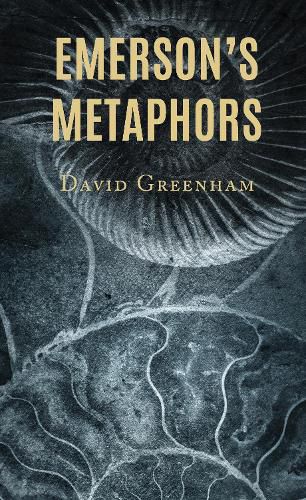Readings Newsletter
Become a Readings Member to make your shopping experience even easier.
Sign in or sign up for free!
You’re not far away from qualifying for FREE standard shipping within Australia
You’ve qualified for FREE standard shipping within Australia
The cart is loading…






Emerson's Metaphors is a fundamental reinterpretation of the major American writer Ralph Waldo Emerson and an interdisciplinary intervention in literary criticism. This book draws on the methods and conclusions of the paradigm shifting Conceptual Metaphor Theory (CMT), which recognizes that metaphor is a cognitive form rather than a rhetorical or ornamental feature. Closely reading Emerson's journals, lectures and reassessing the major essays, Emerson's Metaphors demonstrates that Emerson's prose 'thinks' through its figurative language, enabling the vital symbolic reconceptualizations of nature, man and God that would prove so crucial for the emergence of American literature. This monograph does not just have implications for Emerson scholarship, but as the first full-length study of a canonical writer to use CMT, it provides a model for the interpretation of all literary works.
$9.00 standard shipping within Australia
FREE standard shipping within Australia for orders over $100.00
Express & International shipping calculated at checkout
Emerson's Metaphors is a fundamental reinterpretation of the major American writer Ralph Waldo Emerson and an interdisciplinary intervention in literary criticism. This book draws on the methods and conclusions of the paradigm shifting Conceptual Metaphor Theory (CMT), which recognizes that metaphor is a cognitive form rather than a rhetorical or ornamental feature. Closely reading Emerson's journals, lectures and reassessing the major essays, Emerson's Metaphors demonstrates that Emerson's prose 'thinks' through its figurative language, enabling the vital symbolic reconceptualizations of nature, man and God that would prove so crucial for the emergence of American literature. This monograph does not just have implications for Emerson scholarship, but as the first full-length study of a canonical writer to use CMT, it provides a model for the interpretation of all literary works.